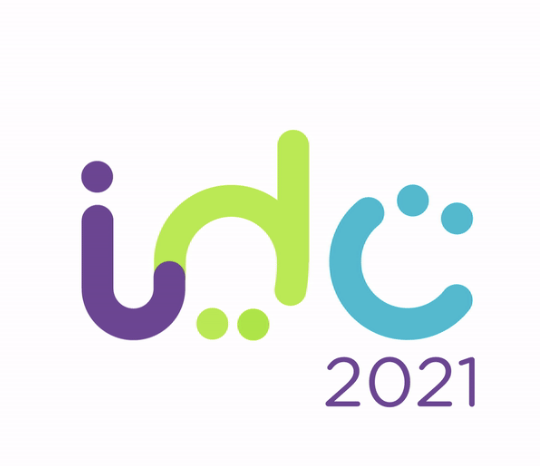Global meets local: Designing with and for children in a changing world
CCTD will participate and contribute to the ACM Interaction Design and Children Conference 2021 (virtually on June 24-30).

We are pleased to have no less than two full papers, a work-in-progress, and a doctoral consortium paper accepted for the upcoming ACM Interaction Design and Children (IDC) Conference on June 24-30, 2021. IDC is the premier international venue for researchers, educators and practitioners to share the latest research findings, innovative methodologies and new technologies in the areas of inclusive child-centered design, learning and interaction. This year’s edition was supposed to take place in Athens but has been converted to an online edition. If only we could get a raincheck for this missed opportunity to explore Greek culture and catch up face-to-face with friends and colleagues from all over the world.
- The work-in-progress and doctoral consortium paper will both be presented by Mariana Aki Tamashiro who joined our team last summer as a PhD student in the CEED-project. During the doctoral consortium on June 24th, she will discuss her ongoing research on combining constructionist approaches with design fiction to teach secondary school students about emergent technologies and their societal implications. The work-in-progress Introducing Teenagers to Machine Learning through Design Fiction: An Exploratory Case Study, which she will present during the main conference, is part of her doctoral work. It describes an exploratory study that uses design fiction to introduce supervised machine learning in the context of facial analysis to 14 to 15 year old students. The preliminary findings suggest that design fiction holds great potential for engaging students in learning activities, and more particularly, to stimulate reflection on their relationship with machine learning applications. The work-in-progress was co-authored by Maarten Van Mechelen, Marie-Monique Schaper and Ole Sejer Iversen, and the study was funded by VILLUM FONDEN. Mariana made a really cool 1-minute video teaser about the work-in-progress that you can find below:
The two full papers will be presented by 1st author Maarten Van Mechelen, who was furthermore invited as a panellist for the IDC workshop on present and future challenges of children’s interactions with robots and virtual agents. This workshop will be organised prior to the main conference on June 25th.
- The first paper, Digital Design Literacy in K-9 Education: Experiences from Pioneer Teachers, reports on an interview study with pioneer teachers to disclose their experiences from teaching design in formal K-9 education for more than three years. Our findings suggest that integrating design in teaching practices can contribute to children’s agency and empowerment in relation to digital technology, but that several structural barriers complicate this process such as summative assessments, teacher-roles, failure-prevention and children’s lack of experiences with open-ended assignments. The paper was co-authored by Marie-Louise Wagner, Gökçe Elif Baykal, Rachel Charlotte Smith and Ole Sejer Iversen, and the research was funded by VILLUM FONDEN. Below you can find a 10-minute video introduction to the paper:
- The second paper, A Systematic Review of Empowerment in Child-Computer Interaction Research, explores how empowerment has been articulated in 188 papers published in IDC proceedings and the IJCCI journal. To analyse these papers, we used an existing framework that distinguishes between functional, educational, democratic, mainstream and critical empowerment. Our findings show that while empowerment is rarely defined, a wide range of different articulations co-exists. Moreover, a shift can be noticed in terms of how empowerment has been articulated from an emphasis on its functional meaning towards a more even distribution and the advent of critical articulations of empowerment. The paper was co-authored by Line Have Musaeus, Ole Sejer Iversen, Christian Dindler and Arthur Hjorth. The study was funded by VILLUM FONDEN and It-Vest Networking Universities. Below you can find a 10-minute video introduction to the paper:
We hope to see you at the IDC conference in a few weeks where both Mariana and Maarten will address questions from the audience about the papers. In case you cannot attend IDC, feel free to reach out via email. You can find our contact details here.
- The second paper, A Systematic Review of Empowerment in Child-Computer Interaction Research, explores how empowerment has been articulated in 188 papers published in IDC proceedings and the IJCCI journal. To analyse these papers, we used an existing framework that distinguishes between functional, educational, democratic, mainstream and critical empowerment. Our findings show that while empowerment is rarely defined, a wide range of different articulations co-exists. Moreover, a shift can be noticed in terms of how empowerment has been articulated from an emphasis on its functional meaning towards a more even distribution and the advent of critical articulations of empowerment. The paper was co-authored by Line Have Musaeus, Ole Sejer Iversen, Christian Dindler and Arthur Hjorth. The study was funded by VILLUM FONDEN and It-Vest Networking Universities. Below you can find a 10-minute video introduction to the paper:
- The first paper, Digital Design Literacy in K-9 Education: Experiences from Pioneer Teachers, reports on an interview study with pioneer teachers to disclose their experiences from teaching design in formal K-9 education for more than three years. Our findings suggest that integrating design in teaching practices can contribute to children’s agency and empowerment in relation to digital technology, but that several structural barriers complicate this process such as summative assessments, teacher-roles, failure-prevention and children’s lack of experiences with open-ended assignments. The paper was co-authored by Marie-Louise Wagner, Gökçe Elif Baykal, Rachel Charlotte Smith and Ole Sejer Iversen, and the research was funded by VILLUM FONDEN. Below you can find a 10-minute video introduction to the paper:
